Curiosity Invited Podcast. David Bryan in dialogue with David Boulton about learning and the role it plays in how human beings become who they become. #DavidBryan #learning #healthylearning #whatislearning #whatsnotlearning #curiosityinvited
Tag Archives | education (institution)
The W3C Accessibility for Children Design Group
I’ve been part of a World Wide Web Consortium design group that is developing the accessibility guidelines for how the internet will evolve to support children. So far we have had 16 meetings. The group put out a survey to its members in an attempt to learn how to best orient its next steps. The […]
Share this:
- Share on Facebook (Opens in new window) Facebook
- Share on X (Opens in new window) X
- Share on LinkedIn (Opens in new window) LinkedIn
- Share on Pinterest (Opens in new window) Pinterest
- Share on Pocket (Opens in new window) Pocket
- Share on Reddit (Opens in new window) Reddit
- Share on Telegram (Opens in new window) Telegram
- Share on Tumblr (Opens in new window) Tumblr
- Share on WhatsApp (Opens in new window) WhatsApp
- Email a link to a friend (Opens in new window) Email
- Print (Opens in new window) Print
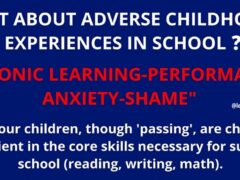
What is the ACE score for chronically feeling not good enough in school?
Since the initial emergence of ACE I’ve been interested in getting an additional type of ACE added to the framework: the adverse childhood experience of feeling CHRONICALLY NOT GOOD ENOUGH AT LEARNING. Where is the ACE score for “Chronic Learning-Performance Anxiety-Shame”? For day after day, week after week, month after month, year after year feeling […]
Share this:
- Share on Facebook (Opens in new window) Facebook
- Share on X (Opens in new window) X
- Share on LinkedIn (Opens in new window) LinkedIn
- Share on Pinterest (Opens in new window) Pinterest
- Share on Pocket (Opens in new window) Pocket
- Share on Reddit (Opens in new window) Reddit
- Share on Telegram (Opens in new window) Telegram
- Share on Tumblr (Opens in new window) Tumblr
- Share on WhatsApp (Opens in new window) WhatsApp
- Email a link to a friend (Opens in new window) Email
- Print (Opens in new window) Print
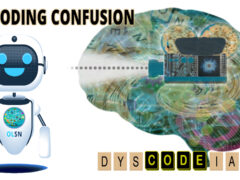
Part 3: Decoding Confusion – The Bottleneck to Progress in Reading
A short but deep journey into the root cause of reading difficulties and a new way of thinking about how to support children and adults who are learning to read and/or reading to learn.
Share this:
- Share on Facebook (Opens in new window) Facebook
- Share on X (Opens in new window) X
- Share on LinkedIn (Opens in new window) LinkedIn
- Share on Pinterest (Opens in new window) Pinterest
- Share on Pocket (Opens in new window) Pocket
- Share on Reddit (Opens in new window) Reddit
- Share on Telegram (Opens in new window) Telegram
- Share on Tumblr (Opens in new window) Tumblr
- Share on WhatsApp (Opens in new window) WhatsApp
- Email a link to a friend (Opens in new window) Email
- Print (Opens in new window) Print
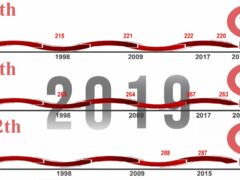
Part 1 – A Brief Tour Through Decades of U.S. Reading Scores
See for yourself. Despite all the hype about reading, despite the thousands of research studies, the billions spent trying to improve instruction, and the trillions lost as a consequence, reading scores in America today are virtually the same as they were when we started keeping data.
Share this:
- Share on Facebook (Opens in new window) Facebook
- Share on X (Opens in new window) X
- Share on LinkedIn (Opens in new window) LinkedIn
- Share on Pinterest (Opens in new window) Pinterest
- Share on Pocket (Opens in new window) Pocket
- Share on Reddit (Opens in new window) Reddit
- Share on Telegram (Opens in new window) Telegram
- Share on Tumblr (Opens in new window) Tumblr
- Share on WhatsApp (Opens in new window) WhatsApp
- Email a link to a friend (Opens in new window) Email
- Print (Opens in new window) Print
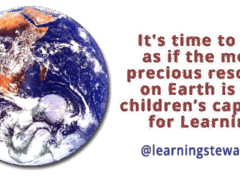
The Institute for the Study and Prevention of ACQUIRED Learning Disabilities
“Learning – it’s the only thing that will never fail us” – Leonardo da Vinci Everything we know about who we are, what we are, why we are, how to do things, and how to change things, we have learned. Learning shapes virtually everything about human life. Implicitly we agree that learning is the central dynamic […]
Share this:
- Share on Facebook (Opens in new window) Facebook
- Share on X (Opens in new window) X
- Share on LinkedIn (Opens in new window) LinkedIn
- Share on Pinterest (Opens in new window) Pinterest
- Share on Pocket (Opens in new window) Pocket
- Share on Reddit (Opens in new window) Reddit
- Share on Telegram (Opens in new window) Telegram
- Share on Tumblr (Opens in new window) Tumblr
- Share on WhatsApp (Opens in new window) WhatsApp
- Email a link to a friend (Opens in new window) Email
- Print (Opens in new window) Print
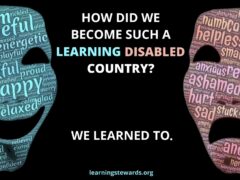
OUR WORSENING NATIONAL LEARNING CRISIS – PISA 2019
NATIONAL LEARNING CRISIS The founders of the U.S. created a framework that liberated, enabled, and ignited a more learning-oriented way of being united. Not perfect, but more perfect. More perfectly conducive to a new kind of collective learning that ultimately lead us to become the world’s most intelligent nation. Today, predatorily stupidified by the machinations […]
Share this:
- Share on Facebook (Opens in new window) Facebook
- Share on X (Opens in new window) X
- Share on LinkedIn (Opens in new window) LinkedIn
- Share on Pinterest (Opens in new window) Pinterest
- Share on Pocket (Opens in new window) Pocket
- Share on Reddit (Opens in new window) Reddit
- Share on Telegram (Opens in new window) Telegram
- Share on Tumblr (Opens in new window) Tumblr
- Share on WhatsApp (Opens in new window) WhatsApp
- Email a link to a friend (Opens in new window) Email
- Print (Opens in new window) Print
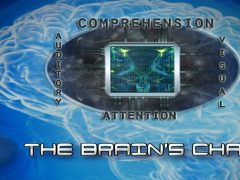
Paradigm Inertia In Reading Science and Policy – Part 3: Learning Disabled Science
Back to Part 2: A Warning Shot from the Bush Administration Everyone we interviewed agreed: a significant component of the challenge of learning to read (English) is recognizing unfamiliar words fast enough to keep comprehension primed and flowing. What most challenges the brain and causes the processing delays that “stutter” the flow of reading, […]
Share this:
- Share on Facebook (Opens in new window) Facebook
- Share on X (Opens in new window) X
- Share on LinkedIn (Opens in new window) LinkedIn
- Share on Pinterest (Opens in new window) Pinterest
- Share on Pocket (Opens in new window) Pocket
- Share on Reddit (Opens in new window) Reddit
- Share on Telegram (Opens in new window) Telegram
- Share on Tumblr (Opens in new window) Tumblr
- Share on WhatsApp (Opens in new window) WhatsApp
- Email a link to a friend (Opens in new window) Email
- Print (Opens in new window) Print
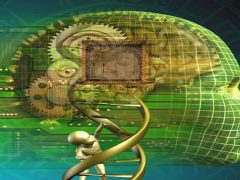
Paradigm Inertia In Reading Science and Policy – Part 2: A Warning Shot from the Bush Administration
Back to Part 1: Children of the Code Though most of our work was very well received, the more we explored the most common “brain processing challenge” involved in learning to read, the more we started to experience resistance. We first noticed this as we began to interview people who didn’t agree with the National […]
Share this:
- Share on Facebook (Opens in new window) Facebook
- Share on X (Opens in new window) X
- Share on LinkedIn (Opens in new window) LinkedIn
- Share on Pinterest (Opens in new window) Pinterest
- Share on Pocket (Opens in new window) Pocket
- Share on Reddit (Opens in new window) Reddit
- Share on Telegram (Opens in new window) Telegram
- Share on Tumblr (Opens in new window) Tumblr
- Share on WhatsApp (Opens in new window) WhatsApp
- Email a link to a friend (Opens in new window) Email
- Print (Opens in new window) Print
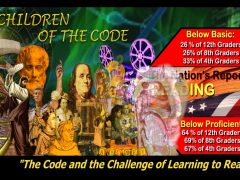
Paradigm Inertia In Reading Science and Policy – Part 1: Children of the Code
The “Children of the Code” project conducted over one hundred in-depth interviews with leading scientists and scholars whose expertise contributed to our prevailing understanding of the “the code and the challenges involved in learning to read it”. Children of the Code Interviewees “This program and the kind of effort that you’re doing seems to be […]
Share this:
- Share on Facebook (Opens in new window) Facebook
- Share on X (Opens in new window) X
- Share on LinkedIn (Opens in new window) LinkedIn
- Share on Pinterest (Opens in new window) Pinterest
- Share on Pocket (Opens in new window) Pocket
- Share on Reddit (Opens in new window) Reddit
- Share on Telegram (Opens in new window) Telegram
- Share on Tumblr (Opens in new window) Tumblr
- Share on WhatsApp (Opens in new window) WhatsApp
- Email a link to a friend (Opens in new window) Email
- Print (Opens in new window) Print
